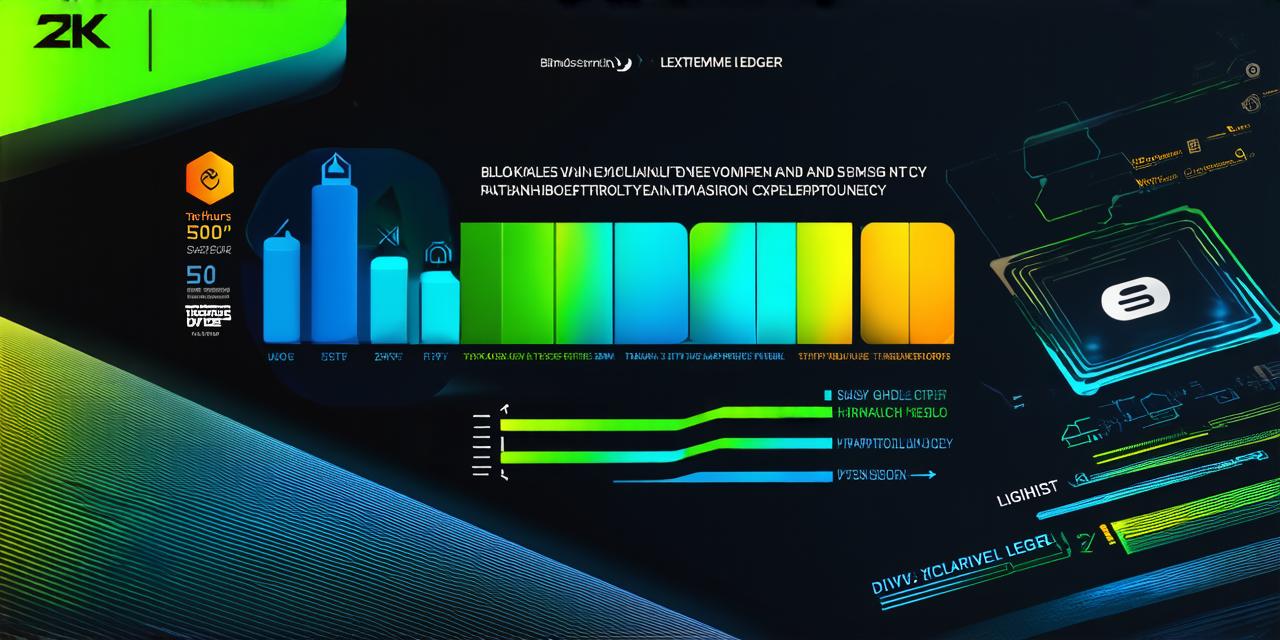What is blockchain and cryptocurrency?
Blockchain technology has taken the world by storm. It’s a decentralized, distributed ledger system that allows for secure and transparent transactions without the need for intermediaries like banks.
But what exactly is blockchain, and how does it work? And what about cryptocurrency? Is it just hype, or is it something with real potential?

In this article, we’ll explore the basics of blockchain technology, cryptocurrency, and their relationship to each other. We’ll delve into the history of blockchain technology, its key features, and how it’s being used in various industries.
We’ll also take a look at some of the most popular cryptocurrencies, such as Bitcoin and Ethereum, and analyze their strengths and weaknesses.
But first, let’s start with a definition. What is blockchain?
At its core, blockchain technology is a decentralized, distributed ledger system that allows for secure and transparent transactions without the need for intermediaries like banks. The basic idea behind the blockchain is to create a decentralized database that can be accessed by anyone on the network, but which cannot be tampered with or altered.
Each block in the chain contains a record of multiple transactions, as well as a reference to the previous block in the chain. This creates a chain of blocks, hence the name “blockchain.” The key feature of the blockchain is its decentralization: there is no central authority that controls the network, making it resistant to tampering and fraud.
The history of blockchain technology can be traced back to 2008 when an unknown individual or group of individuals under the pseudonym Satoshi Nakamoto introduced a new type of currency called Bitcoin. Bitcoin was designed as a decentralized digital currency that could be used for peer-to-peer transactions without the need for intermediaries like banks.
Blockchain technology has since been applied to a wide range of industries, including finance, supply chain management, and even voting systems. It’s been used to create smart contracts, which are self-executing contracts with the terms directly written into code. Smart contracts have the potential to revolutionize industries like real estate and healthcare by automating complex transactions and reducing the need for intermediaries.
But what about cryptocurrency? Is it just hype, or is it something with real potential?
Cryptocurrency is a digital or virtual currency that uses encryption techniques to secure its transactions and to control the creation of new units. The most well-known cryptocurrency is Bitcoin, which was introduced in 2009 as an alternative to traditional money.
One of the key features of cryptocurrency is its decentralization: there is no central authority that controls the currency, making it resistant to tampering and fraud. This has made cryptocurrency attractive to people who are skeptical of traditional banking systems and want a more secure and transparent way to store and transfer money.
However, cryptocurrency also has its drawbacks. One major concern is that it’s highly volatile: the value of cryptocurrencies can fluctuate wildly, making them a high-risk investment for some people. Additionally, because cryptocurrency transactions are not regulated by any central authority, there is a risk of fraud and scams.
Despite these challenges, many experts believe that cryptocurrency has real potential. It has the ability to democratize access to financial services, especially in countries where traditional banking systems are underdeveloped or non-existent. Cryptocurrency could also be used to facilitate cross-border transactions and reduce the need for intermediaries like banks, which could lower transaction costs and increase efficiency.
So, what can blockchain developers do with all this information?
As a blockchain developer, you have a unique opportunity to work on projects that have the potential to change the world. You could work on developing decentralized applications (dApps) that use smart contracts to automate complex transactions, or you could help create new cryptocurrencies with innovative features and use cases.
However, it’s important to stay informed about the latest developments in the field and to be aware of the potential risks and challenges associated with blockchain technology and cryptocurrency. You should also keep an eye on regulatory developments, as governments around the world are beginning to take a closer look at how blockchain technology and cryptocurrency can be used within their jurisdictions.
In conclusion, blockchain technology is a powerful tool that has the potential to transform industries and change the way we think about money. Cryptocurrency is just one aspect of this technology, but it’s an important one that has captured the public imagination. As a blockchain developer, you have a unique opportunity to work on projects that have the potential to make a real difference in the world.



